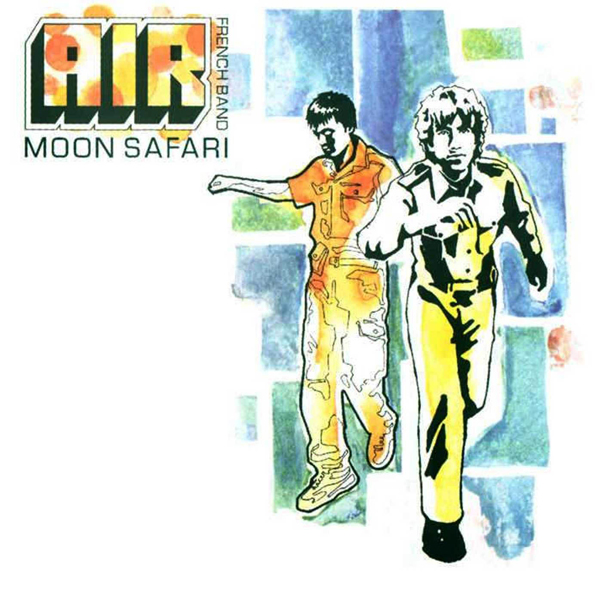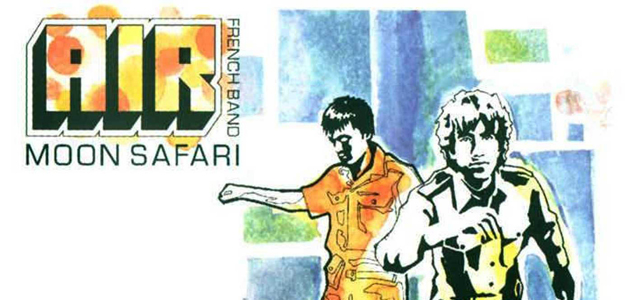French duo Air’s Moon Safari is a downtempo retro space age masterpiece that was greeted as something of an instant classic even when it first came out in January 1998. Although the album was released on Astralwerks records and was technically an electronica album, Moon Safari had in fact almost nothing in common with the big beat sounds of Fatboy Slim, the Crystal Method and the Chemical Brothers, which had captured the hearts and ears of American and UK club-goers at the time.

Air's Moon Safari
From the watery synths, downtempo beat and hooky bass line of the album’s opener, “La femme d’argent,” Moon Safari was instead a laidback, groovy space odyssey, seemingly more readymade for the after party than the main event.
Throughout the album’s spaced-out musical explorations, Air’s Parisian musical monsieurs, Nicolas Godin and Jean-Benoit Dunckel, man the controls masterfully, wielding an array of vintage Moogs, Rhodes and other synths; organs and keyboards conjure up their oddly streetwise, trip-hop-like lunar soundscapes. But unlike much of the space themed ‘70s electronic music that inspired it, Moon Safari manages to maintain contact with Earth through light bossa nova guitar, piano and the raspy, breathy vocals of Beth Hirsch on tracks like “All I Need” and “You Make it Easy.”
The album’s biggest hits were the synth-pop flavored “Sexy Boy” and the disco bass driven “Kelly Watch the Stars.” Although both singles were still fairly downtempo, when pitch adjusted, they could just about be revved up to the pace of laidback dance floor numbers. “Kelly Watch the Stars” in particular, with its disco bass line and rock drumbeat, could have nearly sounded like a Britpop single, had it not been voiced by a robotic sounding vocoder.
Elsewhere on Moon Safari, it’s possible to more clearly hear Godin and Dunckel’s oft-stated appreciation for Burt Bacharach, particularly on tracks like “Ce matin la” and “New Star in the Sky.” Moon Safari’s magnum opus is its closer track, “Le Voyage de Pénélope,” a breezy, trip-hop number that sounds a like the sun coming up slowly over the lunar surface, or maybe just back down on Earth, as the night before stretches on into early the next morning.
Over the years, Moon Safari has seemingly lost none of the shimmering gleam of its retro futuristic charms. Even now, 13 years later, the album still manages to sound simultaneously like a throwback to the ‘70s, a contemporary late ‘90s electronica album and something that’s light years ahead of its time.
Listening to Moon Safari again, all these years later, it’s easy to see the album for what it was: a soundtrack. Not to any of the any of the many late ‘70s/early ‘80s Italian films it would have been perfect for, but rather for the drive home from the club or the after-party in someone’s living room. Whatever else may happen, Moon Safari will ultimately remain secure in its place as the unofficial comedown album of the late 1990s.




